The Harm in Do No Harm
During a presentation at Roots Tech about writing histories my sister-in-law shared some direction the presenter gave about writing history of family members with less-than-sterling details in their lives. The presenter urged family historians to “do no harm” when writing histories.
This spurred considerable discussion between us. It is a thought that continues to trouble me.
Every family is going to have their share of horse thieves, children born out of wedlock, and records of family members found in jails and insane asylums.
Do we skip over such facts out of respect for the idea of “do no harm”?
This as a growing problem in a lot of family histories I see and it swings both ways. There is a tendency to over-glorify accomplishments in the lives of some ancestors or to simply omit significant yet unflattering aspects of their stories.
I believe this is all wrong.
Let me share an ongoing family story of some sensitivity going on in the media right now before our very eyes to illustrate what I’m saying.
A couple of months ago I was drawn to a book I saw on Amazon called “Educated”.
It piqued my interest for two reasons. It purports to be the memoir of a homeschooled child whose story takes her from an isolated Idaho location all the way to Cambridge. This interested me because we homeschooled our children for many years, a decision that remains embroiled in some controversy and regret to this day.
The second reason it interested me was because of who authored it. The book was written by Tara Westover.
Anyone named Westover from Idaho has to be a fairly close relation. (Though I admit I don’t know yet what our connection is).
Tara’s book has raced to the top of the New York Times Bestseller list and has placed her in front of worldwide media. Her story has been described as a “brutal, one-of-a-kind memoir”, a tale of her upbringing in a survivalist family with elements of abuse against a background of “fundamentalist Mormonism” and an anti-government mindset.
I haven’t read the book yet.
But I have seen or listened to many of Tara’s interviews, describing for herself the conditions of her upbringing and the education she has gained in the halls of learning after she left her home and family.
Living as we do in Cache Valley we frequently get asked about other Westover families that have been here for generations.
Until recently, I did not recognize one of the Westover names many have mentioned to us many times before in our five years of living here. They are, as it turns out, the names of Tara’s parents.
They operate a popular business in south east Idaho, not far from where we live, and many people here in Cache Valley know them, though we do not.
In a local paper this week we read with some interest a public response Tara’s parents have delivered via their lawyer to the media. As you might expect, they have taken great exception to Tara’s representation of their parenting and her upbringing.
All of this, of course, will remain available for the world and the descendants of this branch of the Westover family for generations to come.
It is a rare thing. Unlike most people, past and present, there will be a record left of the same events presented through different sets of eyes.
They do not agree.
In a way, I am a bit envious of this fact. The records these Westovers are leaving is far more honest than I think most histories ever get.
I do not doubt Tara’s story. In fact, I believe her story has tremendous value because it is a first person account. It is her view. It happened to her. It is her story.
I also do not doubt the few things said by her parents. They have their view and it is no less valuable than Tara’s.
That’s history. Sometimes history is hard.
While you would hope for family harmony in all things I doubt you would ever find the same events told the same way by everyone that was there. Is that the point of history anyway?
Family relationships are complicated. The stuff-of-life is the reality we all live and generations rarely agree in upbringing and remembrance.
For my money, whether it is my history or anyone else’s in my family, I’d rather have the truth.
Why do I bring this all up?
Fear. Concern. And truth.
Over the course of the next several months I will be posting more on the life of Albert Smith. It contains far deeper elements than I anticipated.
His is a long and complicated story. I have details to share that I believe not many know about. I certainly didn’t know about them from all I had heard and read over the years before I engaged in active, substantive research of his life.
To fully communicate and understand the story I feel there is some background that is needed on some very difficult topics.
Polygamy. Blood Atonement. The Mountain Meadows Massacre. Danites. The Adam-God theory.
Adoption. Rape. Infidelity. The founding of the Relief Society.
Joseph Smith. Emma Smith. Wilford Woodruff. Daniel H. Wells.
Interested?
Yes, it is an interesting story.
It is a story of heartbreak, a story of redemption, and a story of goodness, faith and hope that will bring you to tears (well, it had that affect on me).
Truth does that.
It is vital in recounting the history of ourselves and of our ancestors. Truth is what teaches the real lessons.
Albert Smith left an incredible record spanning 50 years of his life and much of it was written in his own hand.
But he did not tell the full story.
How I wish others around him – eye-witnesses with their own take on the situation – had left a record too.
It would have helped us arrive at the truth – and thus the real lessons – far sooner than we have.
Stay tuned.

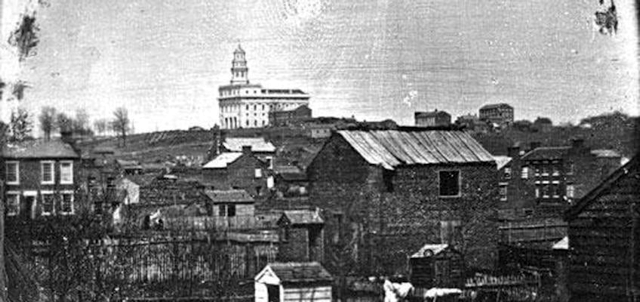
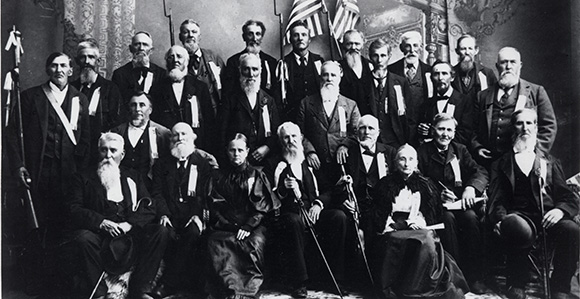
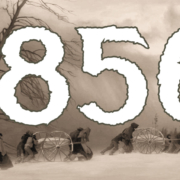
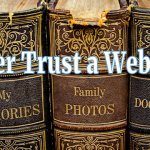
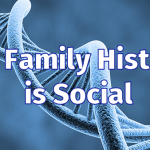
This is a topic of some interest to me. I asked a young man from our Ward what he was learning in his history class. He said,”Well, the first thing I learned is that Columbus didn’t discover America.” I bristle when people begin a discussion of our founding fathers with speculation about whether or not they were faithful to their wives. Should we not first learn of their accomplishments? Must we pull down every monument? I’m ok with adding a few names to the list of patriots but I’m still going to enjoy Longfellow’s midnight ride of Paul Revere.
Having read Tara’s book back when it came out, I wondered at the possible connection to my great great grandma’s line of Westovers. I suspected there had to be one, but back then, I was only dimly aware of how my Ontario based Westovers connected to the western USA Westovers. Thanks largely to Jeff’s research on this site, and my Ancestry,com DNA matches, even 7th cousins feel much closer now than they did back then. And with horse thieves, and penitentiary inmates, coming to light in my own ancestral line of Westovers despite generations of cover-up, the conundrum addressed here is one I too have had to address. I come down on Jeff’s side…the truth be out. I look forward to learning what Tara’s connection to you actually is Jeff. Please keep searching.
Rob